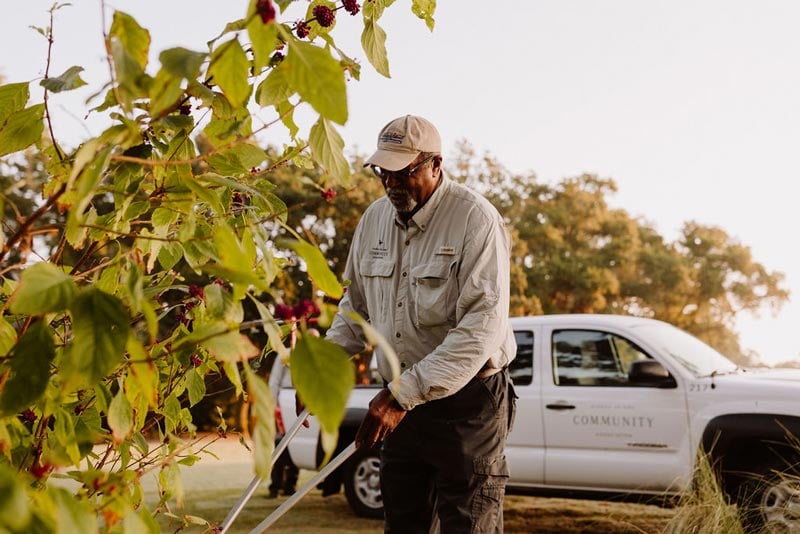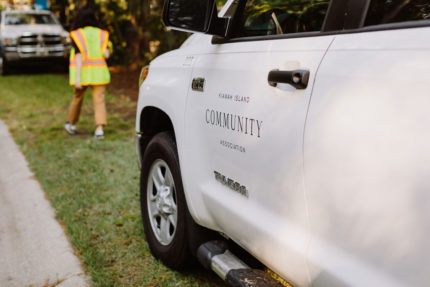Dec
10
2019
From The Blog
2020 Budget Meets Future Challenges
The process of stewarding millions of dollars annually to maintain Kiawah Island is lengthy and thoughtful. Although it’s an ongoing process, budget season officially launches with the creation of the first draft in early September and culminates with final approval by the board in early November. The 2020 budget was finalized at the Nov. 4 board meeting. (Note: amounts have been rounded. See the approved 2020 Budget at kica.us/finances for exact dollar amounts.)
KICA’s budget is two discrete budgets: the operating and the reserve. The operating budget covers expenditures that are routine and predictable. It is funded primarily by the annual assessment paid for by all property owners, commercial access fees, investment income, the amenity assessment and user fees, and other miscellaneous income. The association is committed to a balanced operating budget. In 2020, both revenue and expenses for the operating budget are just over $12.6 million.
The reserve budget covers the cost of major repair to or replacement of existing island infrastructure, based on reserve study projections. This study forecasts the lifespan of and maintenance costs for all infrastructure in the next 40 years, and considers predicted revenues. The reserve budget is primarily funded by Contributions to Reserves (CTRs), which in 2020 are projected at $1.3 million. The remaining amount is funded through reserve assessments, commercial access fees and investment income. Each year, reserve budget costs vary due to the repair and replacement schedule for all assets, so this budget is designed to fluctuate between deficit and surplus. KICA’s 2020 reserve expenses are $4million, leaving a deficit of about half a million dollars. This is consistent with the nature of a reserve fund.
2020 Reserve Budget
One of the largest annual expenditures is the improvement and maintenance of island drainage. In 2020, the drainage allocation is $1.7 million. The switch to budgeting an annual allocation rather than budgeting for specific projects was made several years ago; the change enables staff to modify the scope of a project when it’s beneficial. This allows more timely repair of systems and savings on mobilization costs. One specific project planned for 2020 is the dredging of a tidal channel that empty into the river to optimize drainage. The area of greatest need is the Trumpet Creeper inlet, which comes up to the roadway near the Vanderhorst mansion. The dredging, planned for early2020, is intended to increase water flow off the island and should reduce flooding in that area.
Each year, landscape capital improvement projects refresh key areas of the island. $280,000 is budgeted for this work in 2020. In 2019, KICA’s Lakes department began a pond mitigation project focused increasing drainage and pond health. After a positive response, $100,000was set aside for mitigation work on additional ponds. Another focus will be getting the island camera-readyahead of the 2021 PGA. Plantings will go in around the island, particularly in high-traffic areas, with time to mature before the event. “We always want the island to look good but this is as good an opportunity as any to showcase Kiawah’s beauty,” Jimmy remarked.
Other noteworthy expenses in the reserve budget are:
• $250,000 for resurfacing, retiling and filter replacement for the family pool at The Sandcastle.
• $308,000 to redeck and reinforce the Eagle Point 2 bridge. This will be the fourth of the seven timber vehicular bridges to undergo this type of repair.
• $250,000 to replace the walk bridge to the Marsh Island Tower, which has outlived its useful life.
2020 Operating Budget
The operating budget covers expenditures that are routine and predictable. In 2020, payroll, employee benefits and technology investments are areas of focus. Close to 60% of KICA’s operating budget is payroll and employee benefits, which is in line with metrics from the Club Managers Association of America for clubs of similar size and service level. As in previous years, staffing has been a consistent challenge, with record low unemployment and increasing cost of living in the area.
Investing in employee retention has become a theme, with strategies such as reworking shifts to limit the number of days employees come out to the island, retention bonuses and hiring bonuses. On the recommendation of the director of Land Management, Doug Walter, KICA will try international H2B labor in 2020 – something that has been regularly utilized on Kiawah by other entities, but not by KICA. Doug has experience managing this type of labor force and the association has engaged the same agency as Kiawah Partners and the resort. This change will result in a 3.6% reduction in labor costs for a labor heavy department, despite the addition of coverage in the recent Ocean Park conveyances.
Wage pressure continues to be a real challenge. In2012, 60% of employees commuted from Johns and Wadmalaw islands. That number is down to 40%, with the majority of employees driving long distances from North Charleston, Goose Creek and Summerville.
Another big part of personnel costs is insurance and benefits. 2020’s renewal quote from Blue Choice was19.9% over the 2019 budgeted amount. That was a large increase, and part of a trend in recent years. After some hard work from HR director, Sarah Bond, and Finance and Administration director, Jane Ovenden, KICA will see no increase in insurance costs. Overall, KICA budgeted for a 4.1% increase in 2020 personnel costs, including benefits and international staffing.
KICA’s board of directors has emphasized the importance of investing in technology over the past few years. An examination of pain points made it clear that many of KICA’s limitations were coming from the same foundation: KICA’s member database.
There aren’t a lot of associations out there like KICA in
terms of services and size; out of the box solutions didn’t
meet its varied needs. In 2018, Jane Ovenden began
researching CRM (Customer Relationship Management)
companies, starting with the gold standards: Salesforce
and Oracle. After approximately 8 months of talks,
the team was excited to recommend Salesforce to the board. The company’s product is cloud-based, a key concern during hurricane season. The robust program fosters collaboration between departments and will limit the double, and sometimes triple, entry that staff are doing now. It will enable the Communications team to be more efficient and includes self-servicing options for members. The platform will enhance the member experience in ways that aren’t possible with the current system. The Salesforce project is budgeted at $430,000 (including implementation partner consulting).
Certified Salesforce implementation partner Torrent Consulting will help build a solution that will meet KICA’s needs, as well as a roadmap through the process. This service, which includes tailoring the software to fit KICA’s unique needs, will be $120,000. The board will receive a report after the Torrent discovery portion of the work is complete before the association makes a
continued commitment.
Special projects are generally included in the operating budget. Noteworthy items include:
• $100,000 committed to completing pedestrian safety updates on Duneside Road.
• $55,000 for the final phase of the gate access software implementation.
• $100,000 for issuance of radio-frequency identification (RFID) decals to island contractors and employees. In 2021, member barcodes will be transitioned to RFIDs.
• $125,000 for updates to The Sandcastle. These funds will be directed by the board of directors once they’ve evaluated the different options.
To fund the 2020 budget, there will be a 5% increase in general assessments. Segment assessments for the Preserve and Ocean Park remain at 50% of the maximum annual assessment, which amounts to a 5% increase over 2019. There will be no increase for 2020 in the reserve assessment. KICA’s member survey indicated that 77% of members felt assessments were about right or low, a fact taken into account when attempting to keep assessments within the current range. Board member and treasurer Dave Morley commented, “We are funding some strategically important things while maintaining a balanced operating budget. I think that’s a positive for the community.” Visit kica.us/finances for complete financial info.

